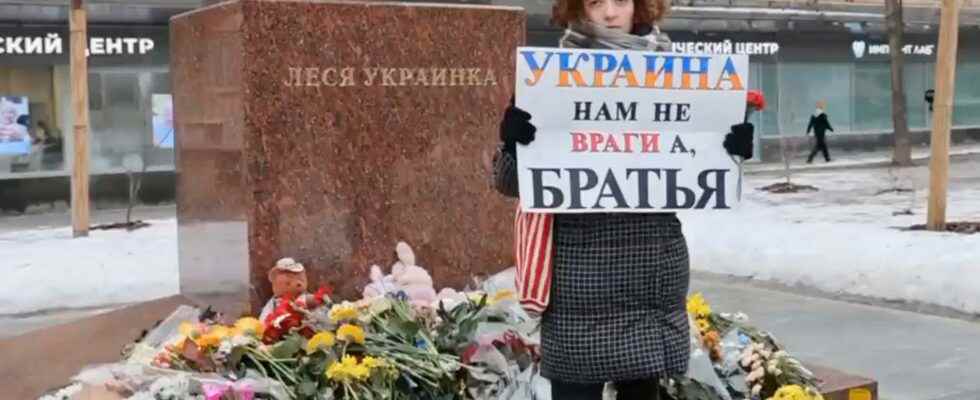Published: Just now
Carnations have run out in Moscow.
The flower protests against their own country’s murder of 46 people in Ukrainian Dnipro are spreading across Russia.
– The flowers are taken away, but people bring new ones. Despite the police officers standing nearby, writes Aleksandr Plyushchev.
After the Russian robot attack in the middle of the night on January 14 against Dnipro, when parts of a nine-story building were demolished and 46 people died, spontaneous flower protests have sprung up across Russia.
In a dozen cities from Pskov to Novosibirsk, Russians outraged by the atrocity have placed flowers, toys and pictures from the Dnipro at statues with Ukrainian connections.
In Moscow, police have arrested at least four people at the statue of the Ukrainian poet Lesya Ukrainka. One of those arrested was Yekaterina Varenik, who held up a placard with the text “Ukraine is not our enemy, they are our brothers”.
“Embarrassed that we are afraid in our own city”
Most people who come to lay flowers are not arrested, but the police try to prevent photography. A man says:
– The police jumped out of the car when we arrived and said “don’t take pictures, just put the flowers down”. Of course it was unpleasant. Since then, I have been thinking why should we have to be afraid in our own city and our own country, when we are doing normal human things? It’s embarrassing.
The man’s fear is a result of the increasingly harsh actions of the Russian police in recent years against demonstrators, who since the start of the war have in several cases been sentenced to long prison sentences or sent to the front in Ukraine.
From both Moscow and Saint Petersburg – where flowers and toys are laid at the statue of Ukraine’s national poet Taras Shevchenko – it is reported that the carnations have run out in nearby flower shops.
– The florists are surprised by the sudden increase in demand for flowers, writes one woman.
Many of the stories and photos of flower protests have been posted by Russian journalist Aleksandr Plyushchev on his account in the messaging service Telegram.
A woman, who left flowers in Saint Petersburg, where the police are not present, writes:
– Of course I cried at the statue. It is not possible to remain calm when you think about what happened. At the site I met a woman who is making a documentary film about the flower protests. Then I realized that I am not alone. We are people, we exist, she writes.
Many critical Russians still remain
About 800,000 Russians have left Russia since Ukraine was invaded on February 24 and especially since mobilization was declared on September 21, but many critical of the war remain.
Political scientist Margarita Zavadskaya. Photo: Private
Political scientist Margarita Zavadskaya, who is employed at the University of Helsinki, has previously told Aftonbladet:
– Most of the opposition is still in Russia. Those who emigrated when the war broke out were young and well educated. They mostly don’t have children and they know other languages.
When the sociologist Ljubov Borusjak posted a survey on the internet in November 2022 and asked those who are against the war in Ukraine but still stayed in Russia to answer questions, she received 1,500 completed surveys in 1.5 days, according to the magazine Cholod.
Many war-critical Russians state that they have not left the country because they are not IT technicians and therefore will have difficulty getting a new job abroad, or because they have elderly relatives to care for.
